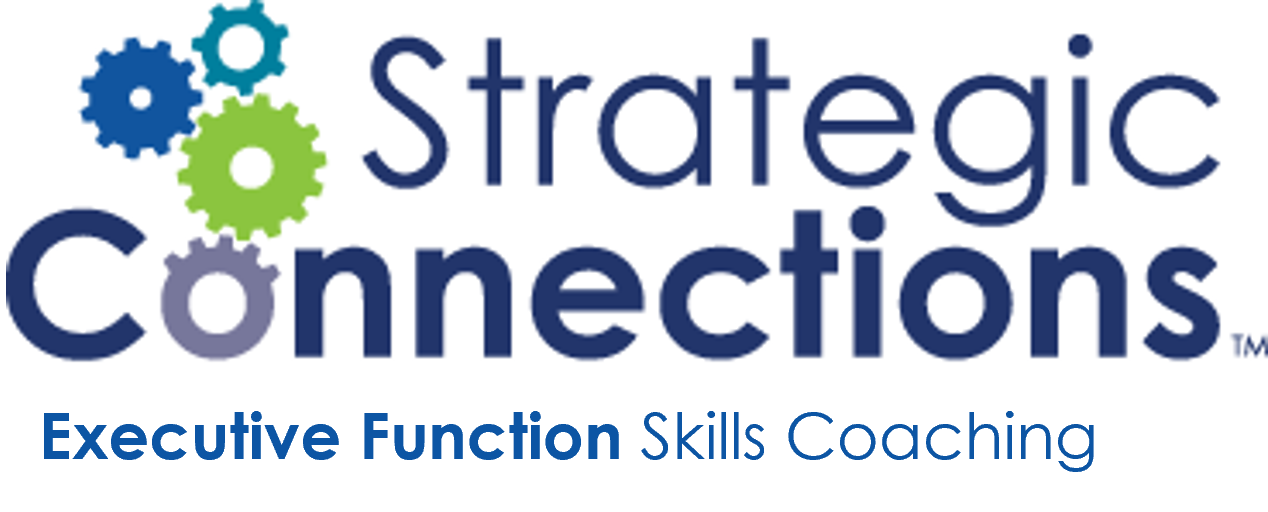On-Track Tutoring
Students who aren’t enrolled at JGS can still benefit from our programs & educators!
Strategic Connections™
Executive function skills coaching & tutoring
What is executive function and how does it affect learning?
Executive Function (EF) refers to a set of skills responsible for things like Planning, Prioritizing, Organization, Task Initiation, Working Memory, Flexible Thinking, Impulse Control, and Emotional Control. This set of skills functions like the “command center” of the brain and is commonly referred to as the brain’s Chief Executive Officer. Like the CEO of a company, EF is responsible for making sure things get done, from the planning stages to the final output.
Every day we use executive function skills in activities such as decision making, strategizing, troubleshooting, managing our emotions, paying attention, keeping “on-task”, and remembering details. Students with EF challenges may have difficulty with: keeping track of time, completing school work and projects on time, working successfully in a group, memorizing information and retrieving information from memory, waiting to speak until called on, asking for help, and more.
Executive Function skills coaching is essential for children identified with ADD/ADHD or other learning differences; however, plenty of people lack executive function skills without having a diagnosed learning disability or attention deficit. Our program teaches kids and teens to plan, prioritize, estimate time requirements, self-monitor, start and shift tasks, and organize effectively, despite any learning or attention difficulties.

Could my family benefit from EF Coaching?
Signs that your child may have challenges with executive function:
- Chronic disorganization
- Challenges in reading comprehension and/or math
- Difficulty with note-taking (including hearing and/or identifying main idea & important details)
- Difficulty with multi-step directions
Often losing track of time - Trouble with generating ideas independently
- Ongoing problems with writing (including organizing thoughts, developing sentences/paragraphs, creating a cohesive paper inclusive of important facts & details)
- Challenges with estimating the amount of time a task will take (such as daily homework or a long-term project)
- Difficulty with memorizing facts
- Struggling with retelling a story or event; may not be able to communicate details in an organized, sequential manner
- Experiencing frustration with recalling information
- Trouble with initiating activities or tasks
- Difficulty retaining information while doing something with it (remembering instructions during an exam, for example)
- Habitually losing or misplacing belongings, forgetting to bring necessary books, etc. home from school, or forgetting to turn in homework
- Becoming agitated when forced to “switch gears” to another subject or activity
Our program empowers kids & teens by:
- Enhance organizational & time-management systems and learn to prioritize
- Complete homework & projects on time, avoiding last-minute situations
- Ask for help when needed & learn other essential self-advocacy skills
- Think critically, & to make corrections while reading and writing
- Participate in class & engage in group discussions
Increase self-esteem by maximizing strengths & achieving results!

Our program empowers parents by:
- Remove themselves from the “nagging” role
- Get (or keep!) your relationship on the right track
- Entrust your child with greater responsibility and accountability
- Empower your child with critical life skills
Targeted Academic Tutoring
Expert educators; one-on-one learning; on-site, in-home, & online
Reading Intervention
Multisensory instruction & support for dyslexia & language-based LDs
Executive Function Skills Training
Essential EF skill-building for ADHD & executive dysfunction
